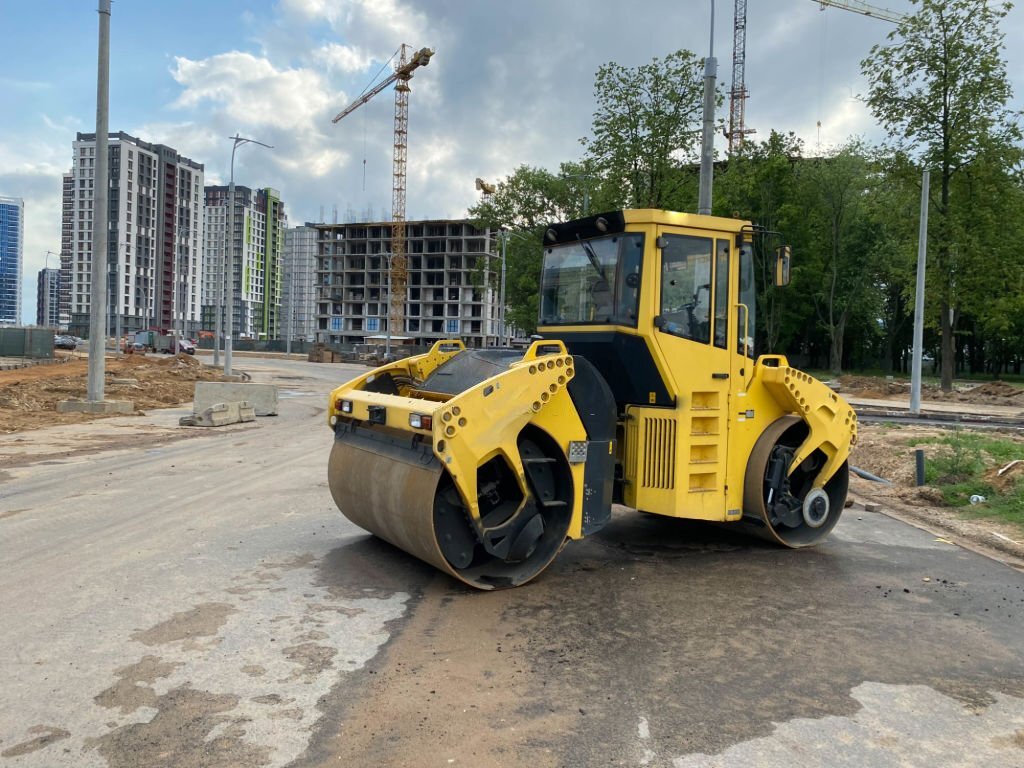
Compactors, commonly associated with heavy equipment operations and construction projects, have proven to be versatile machines with applications beyond their traditional use. These powerful tools find utility in various industries, including waste management, landscaping, agriculture, and recycling. In this comprehensive article, we will explore the diverse applications of compactors outside of heavy equipment operations. From soil stabilization and landfill management to recycling processes and agricultural practices, we will uncover the valuable roles compactors play in various fields.
1. Waste Management
Landfill Compactors: Compactors are indispensable in landfill management, as they help compress and cover waste to optimize space and reduce odors.
Transfer Stations: Compactors at transfer stations compress waste before transport to landfill sites, maximizing hauling efficiency.
Stationary Compactors: Used in commercial and industrial settings, stationary compactors compress waste before disposal.
Balers: Compactors are employed as balers in recycling centers, compacting materials like cardboard and plastic for easier storage and transportation.
2. Landscaping and Grounds Maintenance
Soil Stabilization: Compactors aid in soil stabilization for construction projects, landscaping, and erosion control.
Grading and Leveling: Compactors help achieve smooth and even surfaces for landscaping, sports fields, and public parks.
Turf Maintenance: Used on sports fields and golf courses, compactors help maintain turf integrity and playing surfaces.
3. Agriculture
Crop Compaction: Compactors are utilized to compact the soil around crops, optimizing water retention and root growth.
Silage Compaction: In agricultural operations, compactors are used to compress silage, improving storage and fermentation processes.
Fruit and Vegetable Packaging: Compactors assist in compressing fruit and vegetable waste for packaging and transportation.
4. Recycling Processes
Recycling Compactors: Compactors are integral to the recycling industry, compressing materials like aluminum cans, plastic bottles, and paper.
Glass Recycling: Used in glass recycling facilities, compactors compress glass cullet for transportation and processing.
E-Waste Management: Compactors aid in managing electronic waste, reducing its volume for transportation and recycling.
5. Road and Pavement Maintenance
Pothole Repair: Compactors help compact asphalt in pothole repair, restoring road surfaces.
Crack Sealing: Compactors assist in sealing cracks in pavements to prevent water infiltration and pavement degradation.
Trench Compaction: Compactors compact soil in trenches during utility installations to ensure stability.
6. Disaster Recovery and Relief Efforts
Emergency Response: Compactors are utilized in disaster recovery to manage waste and debris efficiently.
Earthquake and Landslide Recovery: Compactors play a vital role in managing debris and stabilizing soil after seismic events.
7. Environmental Remediation
Brownfield Restoration: Compactors assist in restoring brownfield sites, compacting soil for redevelopment.
Contaminated Soil Management: Compactors are used in environmental remediation to manage and contain contaminated soil.
8. Compactors in DIY Projects
Home Improvement: Compact soil in DIY projects like driveway construction or patio installations.
Garden and Landscaping: Compact soil in home gardens and landscaping projects for better plant growth.
Conclusion
The versatility of compactors extends far beyond heavy equipment operations and construction projects. These powerful machines find valuable applications in various industries, such as waste management, landscaping, agriculture, and recycling. From landfill management to soil stabilization, compaction plays a crucial role in optimizing processes and promoting efficiency in different fields. Compact, durable, and easy-to-operate, compactors have become indispensable tools for multiple purposes, making them valuable assets for numerous industries and applications.

